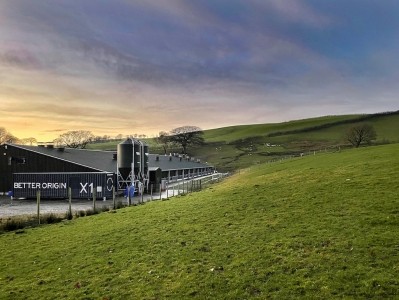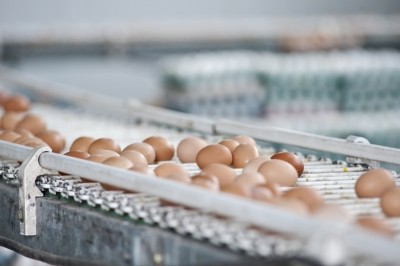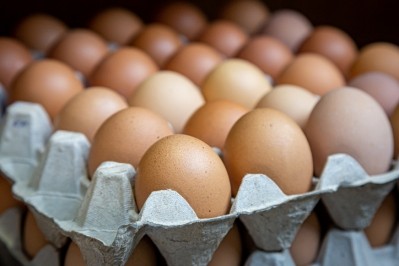Better Origin raises $16m to expand reach of its AI powered mini-insect farms

The funds raised in this round will be used to help the company grow the number of employees and scale internationally, said Fotis Fotiadis, CEO and co-founder of Better Origin.
A University of Cambridge spin-out, the UK company has created decentralized artificial intelligence (AI) powered insect mini-farms, which, using food waste as a raw material, produce Black Soldier Fly larvae which can be fed to farm animals.
The X1 container units are hyperlocal, automated, and easily installed on local farms. The farmer does not have to manage the process. “It is completely autonomous. It uses camera technology in combination with an algorithm to ‘self-calculate’ optimum parameters such as feed levels, without any human input. Basically, anything that a farmer would do, this system does automatically,” according to Fotiadis.
The mini-farm process is simple, he added. The eggs and a biomass are put in one end and trays of fully-grown black soldier larvae are taken from the other. The larvae are grown over 7 to 14 days depending on the type of feed required. When ready, they are harvested and delivered direct to the animals. The system does not involve any processing or the use of any additives.
Although this model can be applied in any food anywhere in the world, the startup decided to focus first on the UK poultry sector and, in December last year, Better Origin signed a deal to supply 10 insect mini-farms to feed chickens at the free-range egg farms of UK supermarket chain, Morrisons.
“We're rolling out X1 containers on 10 of the retailer’s layer farms. We will be landing the first one very soon and we anticipate having all systems installed by September 2022,” said the CEO.
Right now, the insect farms can only utilize pre-consumer waste. “That is the substrate that we are allowed to work with as per the current regulations. There is great potential in utilizing post-consumer food waste. However, we are still mitigating otherwise unusable materials and reducing Scope 3 emissions.”
Moving into other animal sectors
The company is continuing to undertake trial work to understand how its larvae perform in different animal production sectors: “Our biology team is constantly evaluating the effectiveness of different feedstocks, and the impact our feed has on animals. Although now focused on layer chickens, we're working towards implementing our technology in other markets, from broilers to pet food. R&D is deeply rooted in who we are, and we are constantly working to improve our farming know-how, our understanding of biology, and insect adoption in different markets.”
European pilot trials
In the short term, the company is looking to deploy one of its systems on every layer farm in the UK. “This year, our focus is on the UK while we look to set up pilot trials in Europe. Our plan is to expand into EU markets from next year and we’re also exploring opportunities in the US.”
The Better Origin team currently comprises experts from various countries with backgrounds in academia, engineering, farming, marketing, biology, and more. "This has created an incredible culture that fosters innovation, collaboration, and great ideas,” Fotiadis told us.
But the company intends to triple the size of its team this year, to reach a headcount of 70. “We’re recruiting across all departments, from engineering and biology to business and production."













